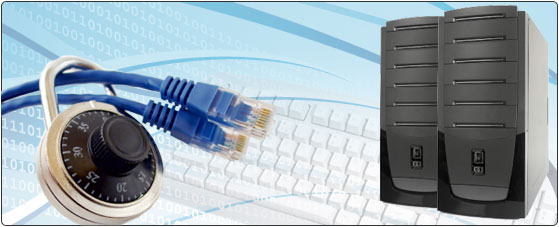The following definitions are not inclusive, but provide a good starting point for terminology related to hosting technology, e-commerce and domain management.
| E-Commerce |
A2A, or Application-to-Application - Integration (EAI) of the internal business systems of an enterprise, forming an essential foundation for B2C and B2B. |
| E-Commerce |
Adapter - Preloaded library containing all standard formats used by a system, such as SAP, SWIFT, and HL7, used by integration software’s formatting process. |
| E-Commerce |
ASP, or Application Service Provider - ASPs provide outsourced state-of-the-art IT infrastructure, applications, and services to enterprises, allowing the enterprise’s resources to concentrate on core business functions rather than on EAI and keeping up with the latest changes in EC technology. Multiple users of an ASP’s system allow each user to pay less than for an identical setup supported in-house, making this technology affordable for many enterprises for the first time. ASPs may eliminate the need for in-house ERP and EAI for some enterprises. |
| E-Commerce |
B2B, or Business-to-Business - With B2C, two faces of the same coin, interdependent and not mutually exclusive. |
| E-Commerce |
B2C, or Business-to-Consumer - With B2B, two faces of the same coin, interdependent and not mutually exclusive. |
| E-Commerce |
Channel Synchronization - Integrating multiple, vertical business channels (systems such as self-service Websites, call centers, retail outlets, dealer channels) in an enterprise to enable real-time cross-channel information sharing, such as querying the history of a conventional sale (made in a brick and mortar store) using an Internet sales systems. |
| E-Commerce |
CRM Customer Relationship Management - Software tool providing a business with one common view of the customer, typically integrating data from interactions via call centers, self-service over the Web, and field sales. Makes sales, service, and marketing more efficient as you recognize the customer as an individual. |
| E-Commerce |
EAI Enterprise Applications Integration - Integration of applications within an enterprise to enable data access, transformation, integration, and delivery. Essential components of EAI software are queuing, routing, and formatting. Unrestricted sharing of information between systems to support any business need. |
| E-Commerce |
EBI or Electronic Business Integration - Integration that connects in-house applications with applications outside the entity. EBI envelopes just the B2C and B2B integration areas, so EAI + EBI = A2A + B2B + B2C = full integration. |
| E-Commerce |
e-Business - The infrastructure and back-office systems integrated to support e-Commerce by enabling internal systems to support doing business over multiple delivery channels, including the Internet. |
| E-Commerce |
e-Commerce |
| E-Commerce |
EDI, or Electronic Data Interchange - Computer to computer exchange of business documents in a public standard format, e.g., ASC X12 or UN/EDIFACT. |
| E-Commerce |
ERP, or Enterprise Resource Planning - The core order management component of an e-business. |
| E-Commerce |
IAI, or Internet Application Integration - Integration of Web-based applications with legacy and packaged applications within an enterprise and with those of external enterprises. |
| E-Commerce |
m-Commerce, or Mobile e-commerce is the uniting of wireless and Internet technologies to evolve mobile wireless networks that enable an enterprise to integrate its wireless and online channels. |
| E-Commerce |
Message Broker Middleware - Hub-type, bus-type, or distributed processing type of software that manages and reformats both transactional and batch messages to integrate disparate applications. Provides one way to achieve STP. |
| E-Commerce |
MOM, or Message-Oriented Middleware - Software that asynchronously connects two disparate systems using pure data messages transmitted in a variety of formats. MOM includes electronic mail software. XML is the common syntax and semantic information format that all messages use as they travel between integrated systems. |
| E-Commerce |
PRM, or Partner Relationship Management - See CRM. |
| E-Commerce |
SCM - Supply Chain Management |
| E-Commerce |
STP, or Straight Through Processing - Elimination of all duplication of human and system effort and of all manual handling of a transaction in a business process, the goal of XAI. STP is a favored method of achieving IAI. |
| E-Commerce |
The process of transacting business over the Internet. |
| E-Commerce |
XAI, or XML-Based Application Integration - Using XML to represent the data being exchanged asynchronously and the system performing the mapping (from the input message format to the receiving system) controlling the data. |
| E-Commerce |
XEDI - Description of how to map from legacy EDI formats to XML so that an entity using EDI can communicate with entities that do not use EDI. |
| E-Commerce |
XML, or Extensible Markup Language - XML is the common syntax and semantic information format that all messages use as data are exchanged between integrated systems. It combines data and metadata in one portable, vendor- and machine-independent unit, sending both to the receiving system simultaneously. Messaging environments that use pure XML messages can be used by any person with a text editor and a publishing tool. |


